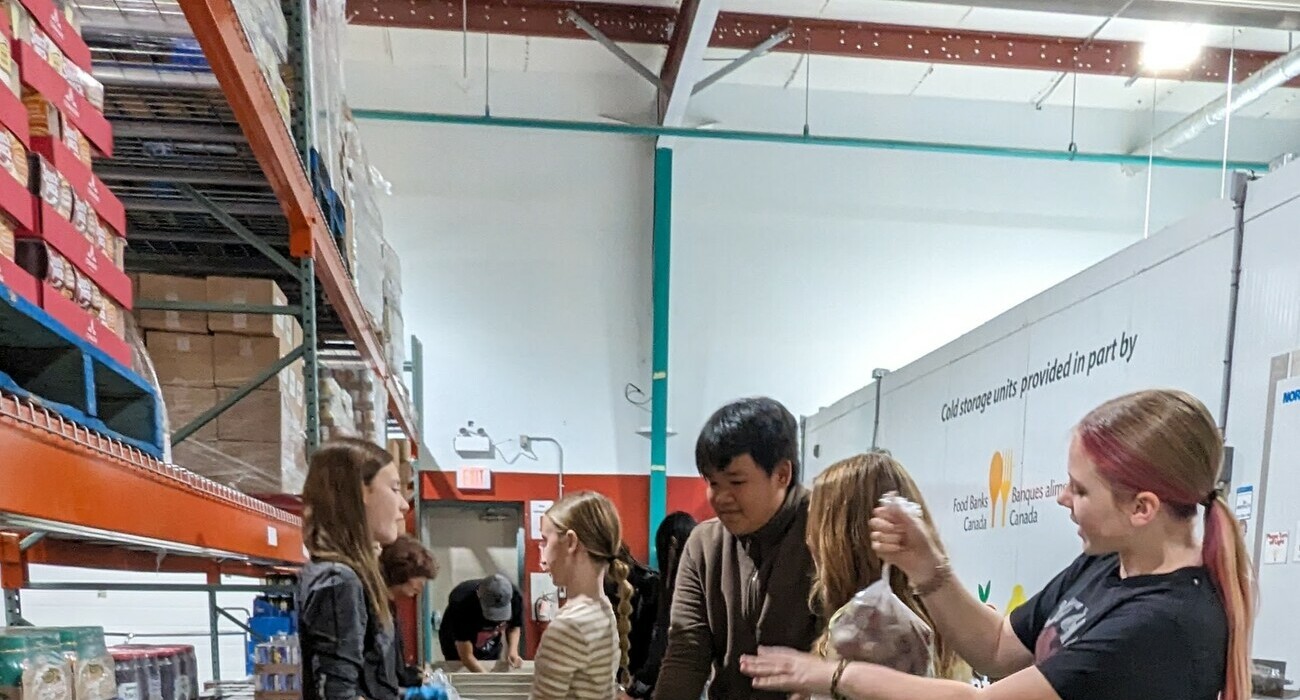
CHAMPION – Students watched intently as Remembrance Day rolled off the pages of a history book and materialized before them in the school gymnasium.
Retired corporal Matthew Schovanek, a special guest for Champion School’s Remembrance Day ceremony, embodies the sacrifices made by so many during times of war and conflict. While on patrol during his second peacekeeping tour in Bosnia, his armoured personnel carrier rolled and left him blind, brain-injured and wheelchair-bound.
With the help of his brother-in-law and primary caregiver, Randy Graf, students learned of that fateful day 24 years ago that changed Schovanek’s life forever. Graf acknowledges it can be difficult for today’s students to grasp the impact of world wars fought so many years ago.
“We can’t possibly identify because our freedom was guaranteed more than 80 years ago,” he said. “The big important thing is that it is still happening today, and our soldiers are now guaranteeing someone else’s freedom.”
Graf asked the students to consider what makes each of them special. For an athlete it might be their reflexes and strength, or the hands and ears for a musician.
“Whatever it is they think is their gift and makes them unique, somebody gave that up in the last seven days protecting someone they are not going to even meet,”’ he added.
The Remembrance Day ceremony at Champion School featured the Last Post and Reveille played by Blake Puzey, as well as poetry and songs performed by schoolmates. Several of them stepped up to the microphone to recite details of local veterans, many of them family members.
Among those sharing connections was Taylor Leakey. A co-emcee for the event, the student council president highlighted the military service of his great, great grandfather Charles Leakey, who was wounded in Flanders, Belgium.
While the Grade 9 student has that personal connection to war, he said Schovanek’s visit helped bring home the message that such sacrifices are still being made today.
Quade Nichols, who shared emcee duties, agreed their invited guest helped put things into perspective and reinforced the need to thank those who serve or have served their country.
“People have protected Canada, for our freedom. If we didn’t have people like that, we wouldn’t be here today. We would be walked to school by armed forces,” said the Grade 8 student.
Before fielding questions from the students, Graf asked what they thought the most significant aspect of Schovanek’s dress uniform was. It wasn’t his blue, United Nations beret, nor the medals on his chest, but a single stripe near the cuff of one sleeve.
That “wound stripe” signifies the wearer suffered a major injury during service. Graf said now, more than ever, the “fallen” are still walking among us and they too must be recognized.
“War has changed a lot, and where the fallen used to all be on the ground and people just died in the trenches, now way more come home, damaged probably irreparably,” he said.





